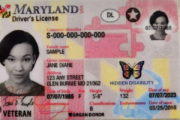Are you planning to sell your home? If so, you’ll work with your real estate agent (or decide yourself if you plan to sell on your own) to determine the initial asking price for the property.
Setting the right price for your home could well be the most important part of the sales process. After all, if you price the house too high, it might stagnate on the market as prospective buyers view the pricing as aspirational or the seller unrealistic. Price it too low and you may leave money on the table. The goal is to arrive at a “Goldilocks” price — one that’s not too high, not too low, but is just right.
“Pricing a home is both an art and a science,” says Fiona Dogan, a global real estate advisor with Julia B. Fee Sotheby’s International Realty in Rye, New York. “The right price can spark a bidding war, while the wrong price can leave your home languishing on the market.”
Real estate agents say that a home’s initial listing price is based on available data, their knowledge of the local market and a little bit of gut feeling.
“Pricing a home is like predicting the winning bid at an auction,” says Eddie Donley, a real estate agent with Keller Williams Connected in Fort Mill, South Carolina. “You can research past auctions, understand the value of similar items and anticipate the level of interest, but until the bidding starts, you won’t know what the market is truly willing to pay. The same is true for real estate. Agents can analyze data, assess trends and position a home strategically, but the market, meaning buyers, will ultimately determine its value.”
If you’re getting ready to sell your house, consider these things when working with your agent to set the price.
[READ: 12 Mistakes to Avoid When Selling Your Home.]
Start With a Review of Comparable Sales, but Keep Going
Determine the fair market value of the property — the price it should sell for — by doing a thorough market analysis based on comparable sales, pending listings and current market trends.
Dogan also takes into account variables such as the location (negatives such as proximity to a highway or train tracks) and the condition of the house (fixer-upper or fully renovated and in move-in condition) when setting prices.
[A Home Inspection Checklist for Sellers]
Consider How the Home Will Appear in Search Results
Selling a home is all about exposure — getting the property in front of the maximum number of potential buyers. Pricing a home at $499,999 is “no-man’s land,” according to Kevin Johnson, managing broker of Century 21 Edge in Orlando, Florida. The house won’t show up in searches either for $400,000 to $499,000 or for $500,000 to $550,000.
“I’m a big proponent of modern pricing strategies where you consider how the home will appear in search results,” he says. “Since the vast majority of homes are found via auto searches either by the consumer or the agent, this is really important. The time of pricing property like it’s a Walmart special is over.”
Still, there is a psychological component to listing a house for $999,999 and not $1,000,000. “Those kinds of manipulations do work,” says Dogan. “Whatever the first number is what will be remembered, so while a house listed for $899,999 is really $900,000, buyers will think they’re bidding on an $800,000 house.”
[Read: What Happens to the Money You Make When You Sell Your House?]
Avoid Aspirational Pricing
No matter what prices your friends and neighbors have achieved, don’t let greed be a factor when setting the price of your home.
“I have come across too many owners who think their home is worth more than it is, and no matter how much factual information I give them, they are adamant about listing at a price way above where it should be,” says Jennifer M. Roberts, an associate broker with Coldwell Banker Warburg in New York City.
Roberts once met with the owner of a penthouse apartment on Fifth Avenue in Manhattan who wanted to sell. The owner wanted to ask over $12 million for the apartment, a two-bedroom unit with a terrace that did not face Central Park, but Roberts suggested a listing price far below that. “Needless to say, another broker got the listing and priced it at the owner’s number,” she says. “It took years to sell at a price that was half what the owner had hoped for.”
That’s why the very success of your home sale may depend on the agent you choose, if you use an agent. Seek out an agent who is experienced in your local market and who has a well-developed network to provide information on currently listed homes as well as homes about to hit the market.
“That could be the difference between a quick sale at the best price and the home not selling,” says Jeff Kahn, a broker with Broker Associates Realty in Summerfield, Florida. “So, choose your agent wisely to get the best price with the least amount of hassle.”
More from U.S. News
What Are Flat Rate Listings and Are They a Good Idea?
The Hottest U.S. Housing Markets
Should You Buy a House With Cash?
The Keys to Success: Pricing Your Home to Sell originally appeared on usnews.com









